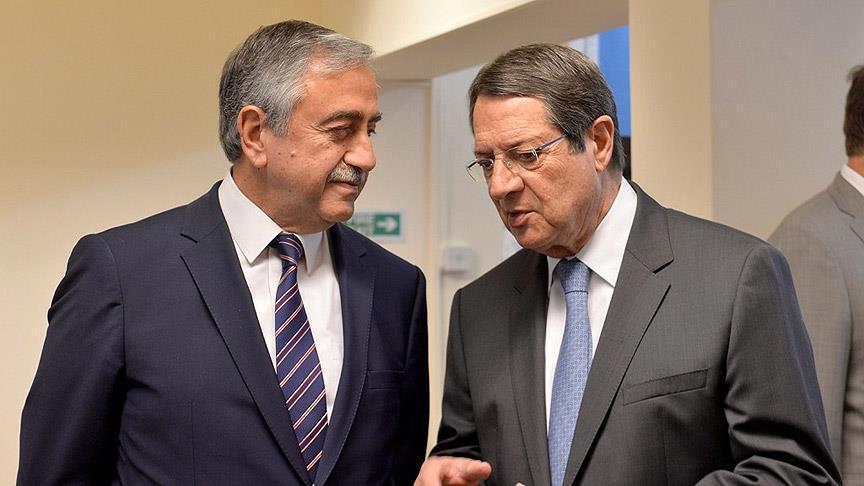
Over 40 years of U.N.-led federal partnership negotiations to resolve the Cyprus issue have failed to yield a result and there is no sign that this will change in the foreseeable future.
This is mainly due to, firstly, the reason that the Greek Cypriot vision for Cyprus is not one of power-sharing, and, secondly, the fact that one of the two politically equal partner communities of the 1960 partnership Republic of Cyprus, the Greek Cypriot partner, has been unconstitutionally afforded the ability on March 4, 1964 to claim to represent the whole island at the expense of the Turkish Cypriot partner.
The Greek Cypriot ex-partner does not now wish to step down from this privileged position.
In his report of May 28, 2004 to the Security Council following the refusal of the U.N. Comprehensive Settlement Plan by the Greek Cypriot side, U.N. Secretary-General Kofi Annan had said: “If the Greek Cypriots are ready to share power and prosperity with the Turkish Cypriots in a federal structure based on political equality, this needs to be demonstrated, not just by word, but by action.”
Since then, the admittance of the Greek Cypriot side to the EU with the claim that they represent the whole island, the ability provided to them to unilaterally exploit the natural resources co-owned by the two peoples of the island, and the discovery of hydrocarbons in Greek Cypriot South Cyprus have further undermined their need and incentive to share power and prosperity.
A mutually and equally felt existential need to join forces and act together is the reason why multi-ethnic federal partnerships are established.
Interdependence is vital for the sustainability of multi-ethnic federal partnerships.
These conditions do not exist in Cyprus, because with the acquiescence of the international community Greek Cypriots have come to believe that they are capable of doing everything on their own without needing Turkish Cypriots.
These have made a federal partnership in Cyprus unfeasible and unrealistic and have immobilized the outworn U.N.-led political settlement process.
The final blow to the political settlement process in Cyprus has come from the unilateral hydrocarbons exploitation initiatives of the Greek Cypriot side and the internationalization/multiplication of the interests linked to hydrocarbons discovery.
In his latest report on Oct. 15, the secretary-general warned that “New rounds of exploratory drilling scheduled for the last quarter of 2018 could result in renewed tensions and significantly complicate prospects for dialogue between the parties.”
Having refused the Turkish Cypriot offer as the co-owner for joint action, it will be the policy and practices of the Greek Cypriot side on hydrocarbons that will determine the shape of the relations of the two peoples and not the sidelined political talks.
Greek Cypriot and Greek policy and practices will also determine whether hydrocarbons exploitation in the region will turn into a blessing or a curse.
On the positive side, however, the risk that hydrocarbons discovery can turn into a curse could unexpectedly lead to a mutually hurting stalemate.
Persistent objections by the Turkish Cypriot and Turkish sides to unilateralism and the actions they have started to take in self-defense could hurt the Greek Cypriot side and could contribute to the mutually hurting stalemate.
This could in turn generate unprecedented collective incentives for dialogue and thinking outside the box.
In his Oct. 15 report, the secretary-general had reiterated that “the natural resources found in and around Cyprus should benefit both communities and should provide a strong incentive for all parties concerned to work in earnest towards a mutually acceptable and durable solution... all efforts should be made to avoid unnecessary escalation in the coming months and to pursue dialogue on this issue.”
As the U.N. secretary-general has suggested, the rational way out is for the two sides on the island to sit down as a priority and discuss how to move forward on hydrocarbons exploitation – jointly or separately.
The choice, which needs to be made now, will shape the overall political settlement of the Cyprus issue and could pave way for the cooperative exploitation of this resource in our region.
To conclude, I do not see any meaningful talks happening or leading to a result independently from the policy and practices of the Greek Cypriot side regarding hydrocarbons exploitation.
Mustafa Ergün Olgun is the former Undersecretary of the Turkish Cypriot Presidency and former Chief Negotiator